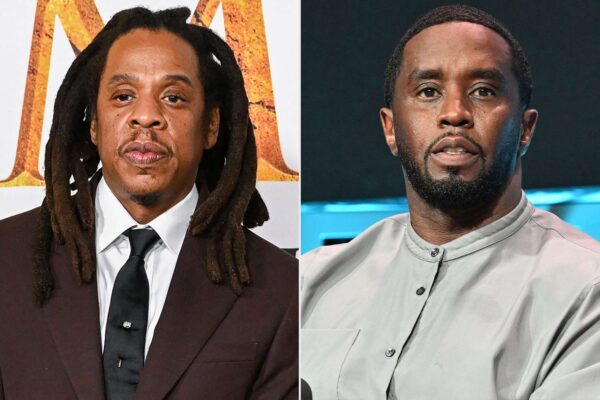The slaughter of innocent civilians in the Darfur region of the Sudan has finally garnered significant international media attention resulting in action as 1.2 million people are threatened there. The Sudanese government has been given 30 days to put an end to the atrocities.
Shamefully meanwhile, in neighboring Uganda, civilians who have suffered at the hands of misguided rebels and government forces for 18 years and who are now confined to unsanitary government-controlled concentration camps and suffering from hunger, sexual abuses and diseases, continue to be ignored. The U.N. has stated that 1.6 million people are endangered in northern Uganda.
Skeptics believe the U.S. and Britain are leading mobilization of global opinion against Darfur due to domestic politics and oil. That the two countries want to divert attention from Iraq, where their soldiers are being killed by insurgents. And since the Sudan’s major combatants, the Sudanese People’s Liberation Army (SPLA) and the government in Khartoum have signed a peace treaty, companies like Halliburton can benefit from oil in southern Sudan. Conflict in Darfur jeopardizes this.
Soon after the United Nations Undersecretary General for Humanitarian Affairs, Ambassador Jan Egland, stated that northern Uganda was the “worst humanitarian disaster in the world,� even worse than Iraq, the British Broadcasting Corporation started the campaign for Darfur. Where was the BBC while thousands were dying in Darfur before that date?
Why does it have to be a choice of either Darfur or northern Uganda? Certainly the international community has the moral obligation and the resources to demand for an end to atrocities everywhere in Africa. The real question is why does the U.S. and British administrations continue to cover for the regime of Yoweri Museveni in Uganda and thus ignoring atrocities in northern Uganda?
Museveni has outlived his usefulness as a proxy for U.S. and British interest in East and Central Africa. Uganda was a staging ground for military operations against the Sudanese government, a continuation of policy initiated under former president Milton Obote.
Museveni also allowed the U.S. and Britain to use Uganda as launching ground to displace French influence in Central Africa, beginning with the 1990 invasion of Rwanda. Officers spearheading the attack were trained in the United States and came with Ugandan passports. French influence was ousted – however, at a heavy cost, the genocide of 1994.
An analogy for the conflict in ethnically-volatile Rwanda would be Pakistan sponsoring an invasion of India by Muslim insurgents. Any sensible person can predict what might happen to India’s Muslim minority if the insurgents appeared on the verge of toppling the government. Of course, Pakistan would bare responsibility – just as Uganda and the U.S. bare some responsibility for the 1994 Rwanda genocide.
Under pretext of protecting its borders, Uganda later teamed up with Rwanda to support Laurent Kabila’s insurgency against Zaire’s Mobutu Sese Seko. It was a popular invasion since Mobutu had ruined the country, robbed $10 billion, and never been forgiven by most Africans for arranging the murder of independence hero Patrice Lumumba.
However, when Uganda and Rwanda found Kabila too independent minded, the two countries tried to overthrow his regime, again with tacit U.S. and British support. Why did the U.S. and Britain support such misadventure? Many Western companies have been identified by the U.N. as beneficiaries from Congo’s chaos, looting minerals and resources without paying fees to the central government.
The second invasion was unpopular amongst war-weary Congolese. Kabila rallied support from Zimbabwe and Angola, whose armies routed the invaders. Although Kabila was later murdered, the Congo, under his son Joseph Kabila, is slowly consolidating its sovereignty. It is inconceivable that the U.S. or Britain could gain by sponsoring another invasion from Uganda. After all, more than 3 million Congolese perished as a result. DRC is still waiting for those atrocities to be categorized as genocide by the U.N., the U.S., Britain, and The New York Times. With respect to the Sudan, Museveni’s usefulness has also evaporated as the SLPA and the Khartoum government both seem war-weary and desirous of peace.
When it comes to domestic Ugandan politics, the future does not bode well for Museveni.
He has clamped down on dissent, driving the presumptive winner of the last presidential elections, Dr. Kizza Besigye into exile and he is now campaigning to amend Uganda’s constitution to lift presidential term limits.
Why then should the U.S. and Britain still ignore the crisis in northern Uganda? How do the victims in those camps, and elsewhere in Africa wherever conflict rages, feel when they learn that the international community – led by the U.S. and Britain – act in concert to end the slaughter in Darfur while ignoring their plight?
The world cannot operate under a policy of selective enforcement of justice and humanrights. That’s the type of hypocrisy that provides license to tyrants everywhere.
Readers please send comments to [email protected]






